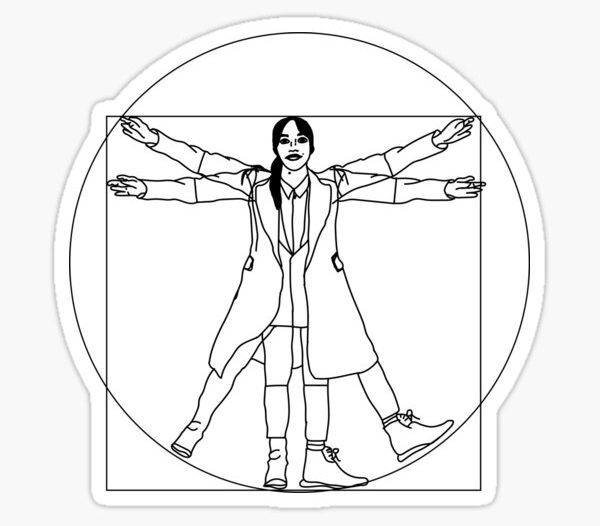
Philomena Cunk, the irreverent, confoundedly misinformed journalist on the Netflix series Cunk on Earth, tackles topics head on. Armed with notes just handed to her, insights from her friend Paul, research on YouTube, and her own life experience, the intrepid Cunk (comedian Diane Morgan) interviews distinguished experts on topics ranging from evolution and religion to history, music and the rise of technology. I’ll admit upfront: I love this kind of goofy humor, built as it is on challenging norms and asking unserious questions of very serious people. Cunk’s voiceover intros are hilarious: “Because no one had invented camouflage yet, the British troops of the time wore bright red coats and were consequently shot in the thousands, while looking amazing.”
Yet, for business decision-makers, the truths that make Cunk both funny and insightful pose very real challenges. What makes information reliable, authentic and actionable? Is that expert or my team telling me what they really think? How do I make rational decisions in an era of deep fakes, disinformation, and general distrust? Indeed, this month, the U.S. Supreme Court could address some of these very questions when it hears arguments in a landmark case involving Section 230 of the 1996 Communications Decency Act, which provides social-media companies broad liability protection for user-posted content. A decision should come in June. In the meantime, what’s a manager to do? As usual, and unlike Cunk, I’d recommend a few good books.
If news about the world and angst about the future have you unsettled, that’s “normal,” according to Rohit Bhargarva and Henry Coutinho-Mason, trend experts and authors of the engaging new book The Future Normal: How We Will Live, Work, and Thrive In The Next Decade. The key, they say, is to more deeply consider the future and plan your place in it. In 10 short, topical chapters, the authors take readers on a journey, identifying emerging trends in areas including learning, media, health, wellness, and remote work, showcasing the “instigators/”innovators responding to them, and positing how we might use innovation collectively for a better, more just and sustainable world. I was especially intrigued by the chapter on “Certified Media” and the startups addressing the proliferation of AI-generated disinformation. Can more technology restore trust in information and news? Would media outlets support a certificate or standard that authenticated all images and videos before publications? This book will leave you thinking — while Cunk ponders whether Egyptian mummies rode bikes.
Of course, for Cunk, all experts and prognosticators should be approached with skepticism. Colleagues can deceive or mislead us, especially when trying to avoid blame, an uncomfortable topic, or a project they can’t get that excited about. Mindreader: The New Science of Deciphering What People Really Think, What They Really Want, and Who They Really Are, the latest fascinating book by Dr. David Lieberman, a psychotherapist and “lie-detector” who instructs FBI and law and security agents, sorts some of this out. Lieberman unpacks how liars tell and sell stories, often long ones, embellishing responses that should be short, simple and plain. How liars tell those stories matters too — and passive voice (“Mistakes were made”) and impersonal pronouns (you and they, not me and mine) can be revealing tells. Discerning leaders will enjoy Lieberman’s practical insights. No one likes to be fooled.
In fact, that very concern might be driving decision-making and strategy at many levels these days. I really enjoyed Foolproof, the wonderful and thought-provoking new book by University of Pennsylvania Carey Law School professor Tess Wilkinson-Ryan, centered on how sugrophobia, the fear of being duped, exploited and played for a sucker, crowds and distorts business negotiations and everyday thinking.
Wilkinson-Ryan, who also holds a doctorate in psychology, teaches Contracts, and she provides countless examples of how regret-aversion — not engaging because something appears too good to be true or lending aid because “someone might be a scammer” — can inhibit creativity, connection and win-win solutions. Her discussion of how some politicians and leaders weaponize the sucker narrative is a must-read for critical thinkers. Small wonder that Cunk believes we’re all deceived by the “facts” about the moon landing and even the very existence of the moon — it’s all spelled out in a Youtube video that smarter people should watch.
Where does all of this lead? Can we refocus our thinking and reclaim integrity, trust, and authenticity in a rapidly changing world? Only time will tell. After all, “thinking about thinking is the hardest sort of thinking there is,” according to Philomena Cunk.
Read in the Boston Business Journal
Authors & Innovators is an occasional column by Larry Gennari, a transactional lawyer, law professor, and chief curator of Authors & Innovators, an annual business book and ideas festival. Gennari also teaches Project Entrepreneur, a business fundamentals bootcamp for returning citizens, at BC Law School.




